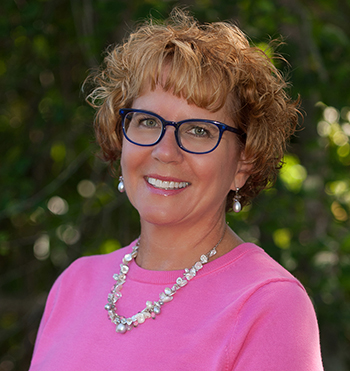
Amy Mclaughlin-Hatch
Last summer, social studies teacher Amy Mclaughlin-Hatch went on trip with the Holocaust and Jewish Resistance Teacher’s Program to Germany and Poland, visiting 42 sites significant in the Holocaust. Now, with the help of IWitness, she’s bringing this knowledge back to her high school students at Southeastern Regional Vocational High School in South Easton, Massachusetts.
Mclaughlin-Hatch received the Margot Stern Strom Innovation Grant from Facing History and Ourselves, a nonprofit international educational and professional development organization, which she used for the trip and a camera with which she photographed all the sites. The grant, which Mclaughlin-Hatch received in partnership with fellow teacher James Fernandes, is awarded to educators who have a special classroom project in mind.
Mclaughlin-Hatch’s project is for her students to create the “Historical Memory Project, a student-produced publicly-accessible virtual tour of important locations in Holocaust history,” according to the Facing History website.
Since she returned from her trip, Mclaughlin-Hatch has been having her social studies students research each of the sites along with survivors’ stories, something Mclaughlin-Hatch utilizes IWitness and the Visual History Archive for.
“IWitness has changed my teaching approach because students can access their own survivor testimony and learn on their own and learn about the stories and survivors that relate to their topic or that they are interested in, instead of the entire class viewing the same survivor,” she said.
While Mclaughin-Hatch provides much of the “where” information to her students from her trip, the VHA helps to add the “who” to the students by presenting them with Holocaust survivors who, at one time, were in many of the same places Mclaughlin-Hatch visited.
“It is my hope that my students have learned that each survivor has a story."
Southeastern Regional Vocational High School is unique in that it gives students the ability to study any one of 20 technical programs including marketing, carpentry, cosmetology, culinary arts, and plumbing. In addition to social studies, Mclaughlin-Hatch teaches in the Video & Performing Arts program. Her students in that program are completing the second part of the project.
“My video students will be taking my photos and video and incorporating the research from my students and make a film of my trip,” she said.
In addition to the scholarly and professional skills the students have utilized researching and creating the film, the project has allowed students to learn about the Holocaust at a more personal level.
“It is my hope that my students have learned that each survivor has a story and that the Holocaust was not just about numbers but about people,” she said.